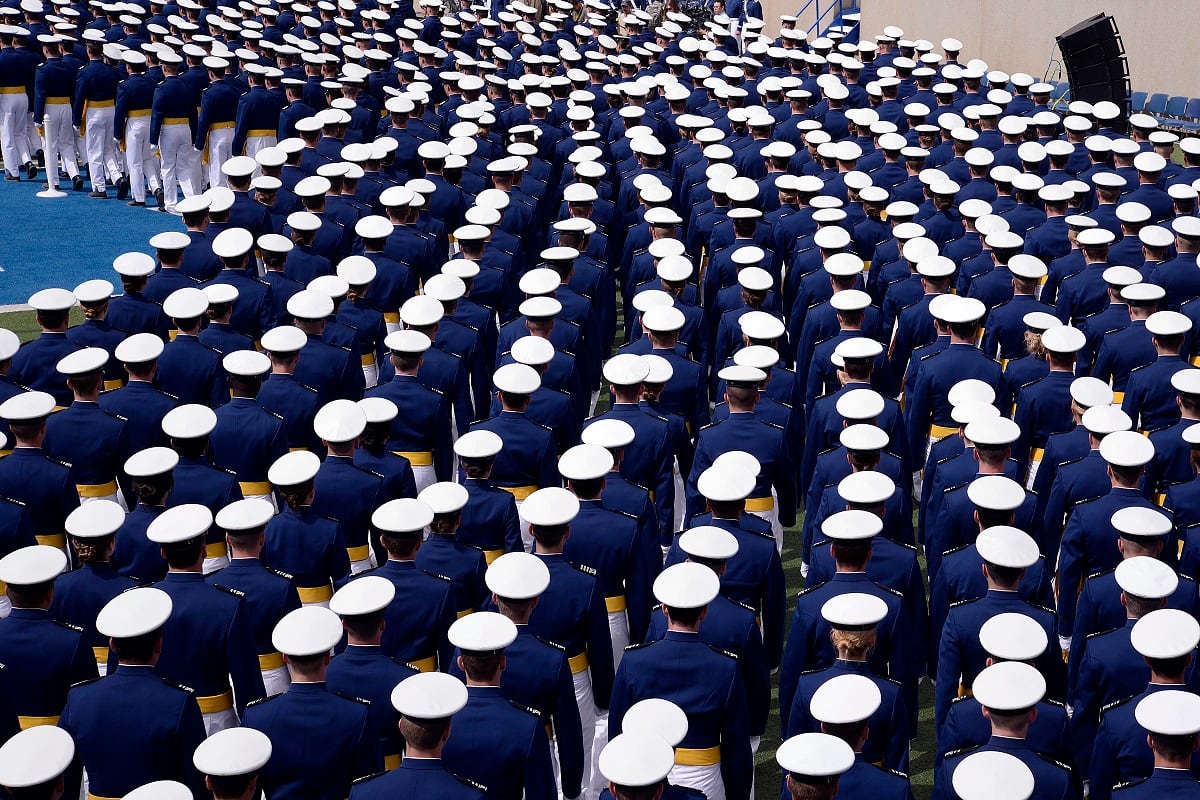The Air Force Academy is restructuring its Sexual Assault Prevention and Response Office after an internal investigation revealed misconduct and mismanagement.
A report on the investigation said the office’s former director, Teresa Beasley, was incompetent and “derelict in the performance of [her] duties.”
The report recommended that Beasley be removed from her position as sexual assault response coordinator for failing to manage her staff, spreading rumors about personnel and demonstrating a lack of competency that jeopardized the office’s ability to support victims of sexual assault.
RELATED

The results of the commander-directed investigation were first reported by the Colorado Springs Gazette.
Beasley, who had overseen the office since 2007, resigned. But in an interview with CBS News, which recently aired the results of a six-month investigation into the academy’s handling of sexual assault complaints, Beasely said she’s been made a scapegoat for standing up to leadership and advocating for survivors.
In an interview that aired Dec. 12, Beasley told “CBS This Morning” that the Air Force Academy is “absolutely not“ supportive of cadets who report sexual assault.
More than a dozen current and former cadets told CBS News they reported their sexual assaults to the Air Force Academy only to experience retaliation by their peers and their commanders. Several said they left the academy due to constant harassment.
Academy officials told CBS that 11 cadet survivors of sexual assault left the school in the past five years. Eight disenrolled “voluntarily.” The other three left because of an honor violation, poor academics and a fitness deficiency.
In addition to finding a new director for the SAPR office — the sexual assault response coordinator — the academy is looking to fill other positions after some staff members were removed.
Academy spokesman Lt. Col. Allen Herritage said there are two main focal points as the office is restructured.
“One of the main things is, we’re going to have an additional sexual assault response coordinator assigned to the 10th Air Base Wing and one assigned to [the academy],” Herritage told Air Force Times.
The academy-designated SARC will focus on cadets, whereas the 10th Air Base Wing SARC will focus on airmen stationed there and support personnel.
“We think that will make our SARC coverage more comprehensive,” Herritage said.
Improving qualifications is another focus as the academy restructures the SAPR office. For civilian hires, the academy uses priority placement, in which a military spouse or veteran is preferred over a non-military spouse or veteran with the same qualifications.
“Obviously you have to meet certain qualifications,” Herritage said. “But if two candidates meet those qualifications, they have priority if they’re in one of those categories.”
Moving forward, the academy will more closely base its hiring decisions on who is the most qualified.
Another effort to improve the SAPR office will be introducing two positions called violence prevention integrators.
“These personnel will get at the prevention aspect and what things we can do to get ahead” before any sexual assault were to occur, he said.
Herritage said the academy expects the new positions to be filled in the next six months.
“The overall purpose is to give cadets and permanent party more options to get the care they need,” he said.
Charlsy is a Reporter and Engagement Manager for Military Times. Email her at cpanzino@militarytimes.com.




